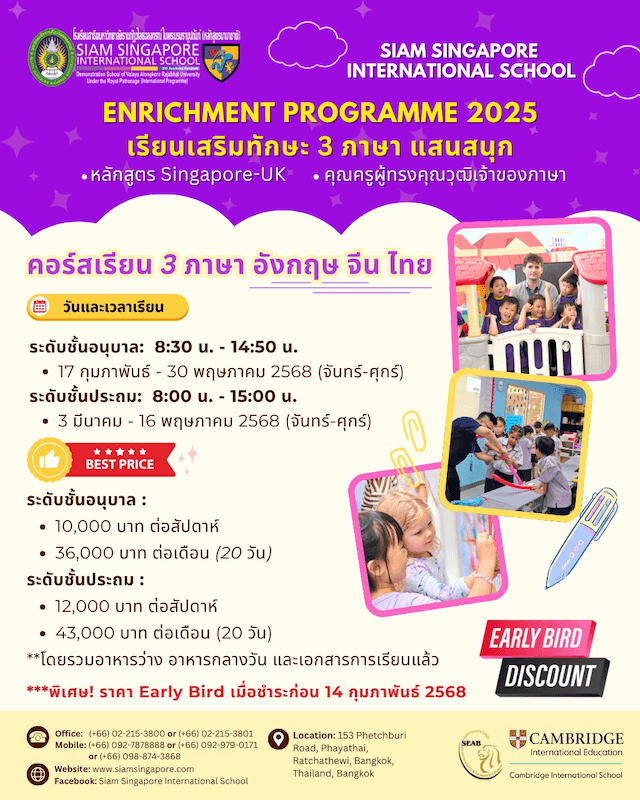What would we have done over these last few months without jigsaw puzzles! Lucky for us many of the Bangkok Toy Stores are delivering more options direct to your door and this is definitely a service we’ve taken advantage of… you can only create Hogwarts so many times!
Puzzles are fun but they are also an important learning tool that can be used to enhance child development. The key ingredient is in selecting age-appropriate puzzles. Allow your kids to start with puzzles such as the outlines of basic shapes and as they grow, you can gradually introduce more complex versions with a few hundred pieces from their favourite Disney or book characters. My teens love nothing more than taking over the dining table with thousands of puzzle pieces and creating a masterpiece over a few days, definitely a top Coronavirus lockdown past time in our home.
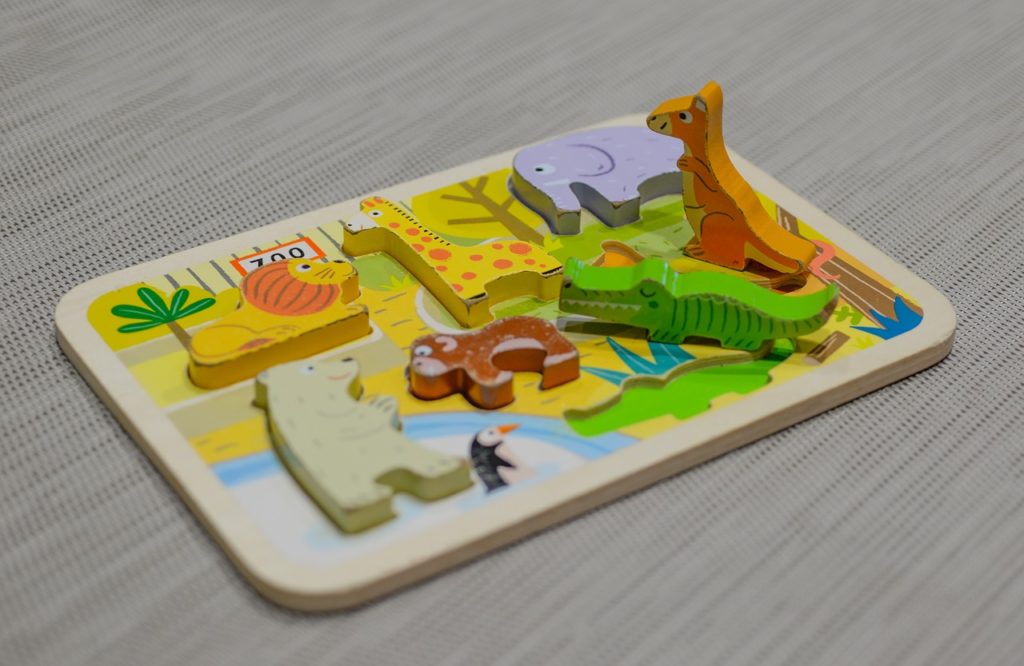
According to psychologists, allowing a child to manipulate the world around them improves the development of their brains. Puzzles make that possible. Therefore, try to engage your kids in puzzles and you will be surprised at how fast they will “outgrow” their age.
Puzzles such as jigsaws and wooden board games are not only good for the development of your child’s brain but also inexpensive. They help your child to take some time from the TV, tablets and computers, and keep their minds engaged in a healthy source of entertainment for a few hours. They challenge their young minds while helping them to relax. They are also reusable so kids can keep them to play over and over again or swop them with friends. In addition, puzzles can be easily found online. We have recently found puzzles my kids did at age 2 and above and it’s been a wonderful walk down memory lane sitting together doing them now as we all all confined to our homes.
Let’s look at how encouraging your kids to do puzzles can help early child development.
1. Hand-Eye Coordination
Puzzles encourage kids to develop their hand-eye coordination. The ability to coordinate what the eye sees, the mind wants to do and what the hands can achieve requires a lot of practice. Children learn to develop a relationship between their eyes, hands, and brains. Children also visualise how the puzzle should look when it is complete and their hands and eyes work together to achieve the final goal.
2. Fine Motor Skills
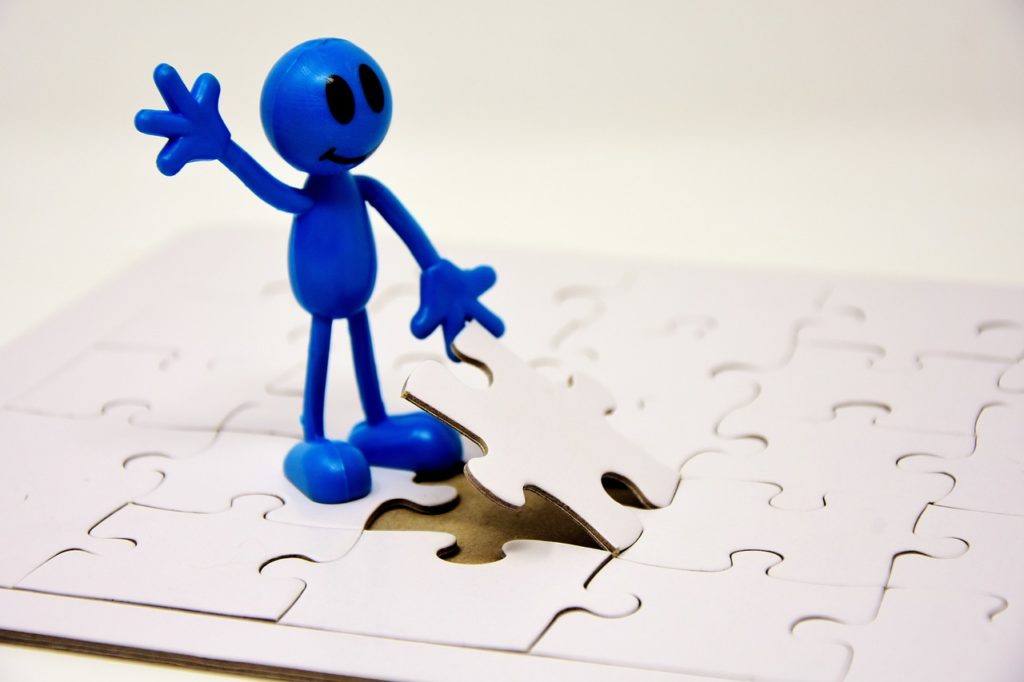
Puzzles help kids enhance their fine and gross motor skills. They develop strength in their finger muscles so they can grasp things and hold onto them. This results in the ability to hold onto pencils and crayons. Puzzles offer a fun way to practice this skill while encouraging independence.
3. Memory and Cognitive Skills
Puzzles give kids the chance to use adaptable thinking, deduction and reasoning skills as they figure out how to put the puzzle together. The fact that they need to remember shapes and patterns, helps to develop their memory retention (not a bad thing for parents as they age either!)
You can, therefore, use Puzzles like shut the box game, to develop or improve cognitive skills and gain the ability to think abstractly. When children see an empty space where a puzzle piece may fit, they need to figure out what type of shape if needed to fill that space. Puzzles are also often used when working with Autistic children as a playful tool to encourage speech and cognitive development.
4. Problem Solving and Self Correcting
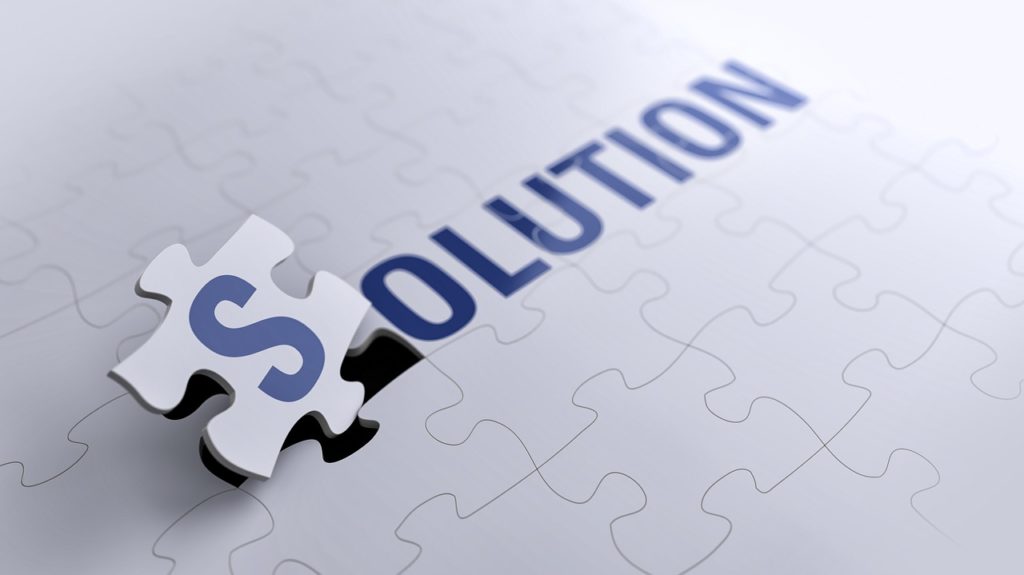
Solving problems requires creativity and patience. Puzzles are mostly about finding different ways to solve problems. They force a child to think critically to find the right pieces as with puzzles, there are no shortcuts. If a piece does not fit, there is nothing they can do to cheat. They become aware of how to self correct, if the piece doesn’t fit into a certain space they need stop and figure out where that particular piece should fit. The act of manipulating each piece, turning it and testing the fit is a great exercise in problem solving.
5. Improved Concentration & Patience
Completing a puzzle requires kids to focus for long periods of time. They need to take their time to see how different pieces will fit and this develops concentration skills and patience skills both of which are useful later in life. Remind them that completing a puzzle from the start to finish is not always easy on the first attempt, they may need to repeat this a few times before they find the correct fit for all the pieces.
6. Objectives & Goals
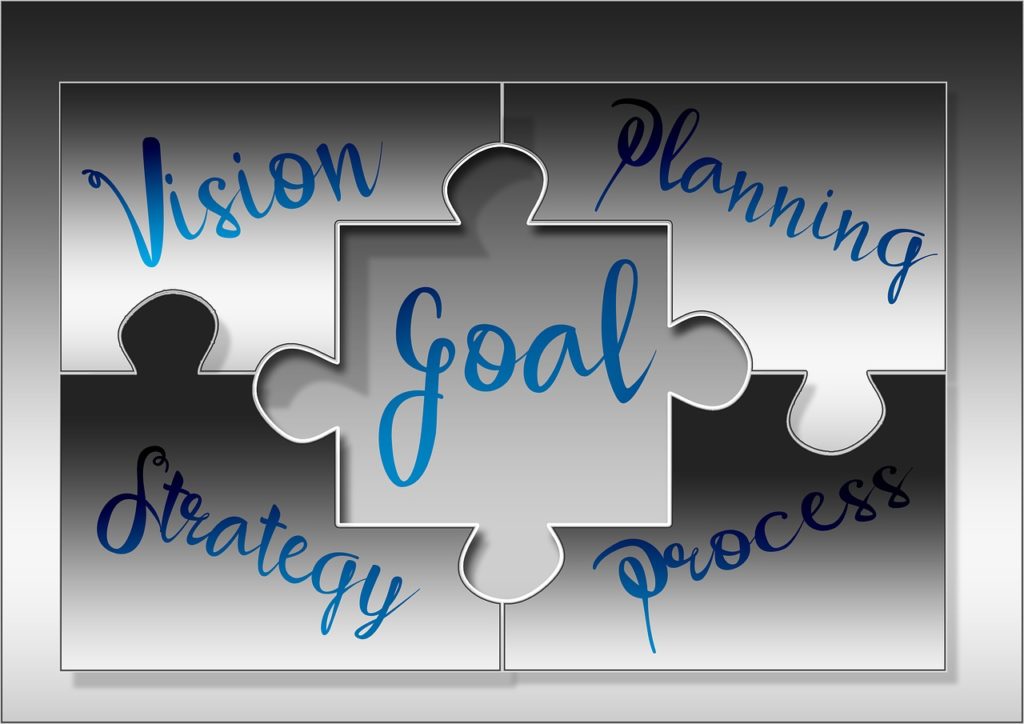
Your child may need to set up a few different strategies to help them complete a puzzle. Kids learn to catagorise and organise pieces into colours and specific shapes in order to make a plan on how to start or complete the puzzle. They learn that following that plan, being organised will help them meet their final objective which is completing the puzzle.
7. Shape Recognition
Recognizing shapes is an important part of development for children. Puzzles help your child to identify and distinguish different shapes. Mosaic puzzles encourage imagination and creativity and the different shapes stimulate brain cells and encourage prolonged interest when arranging many different sizes and shapes in endless designs.
8. Learning New Things
Puzzles can be a valuable tool for your child to learn new things. There are puzzles of numbers, letters, maps, and more. Each one of them may cause your child to develop a new interest. If you want your child to learn new things, puzzles will help.
9. Social Skills
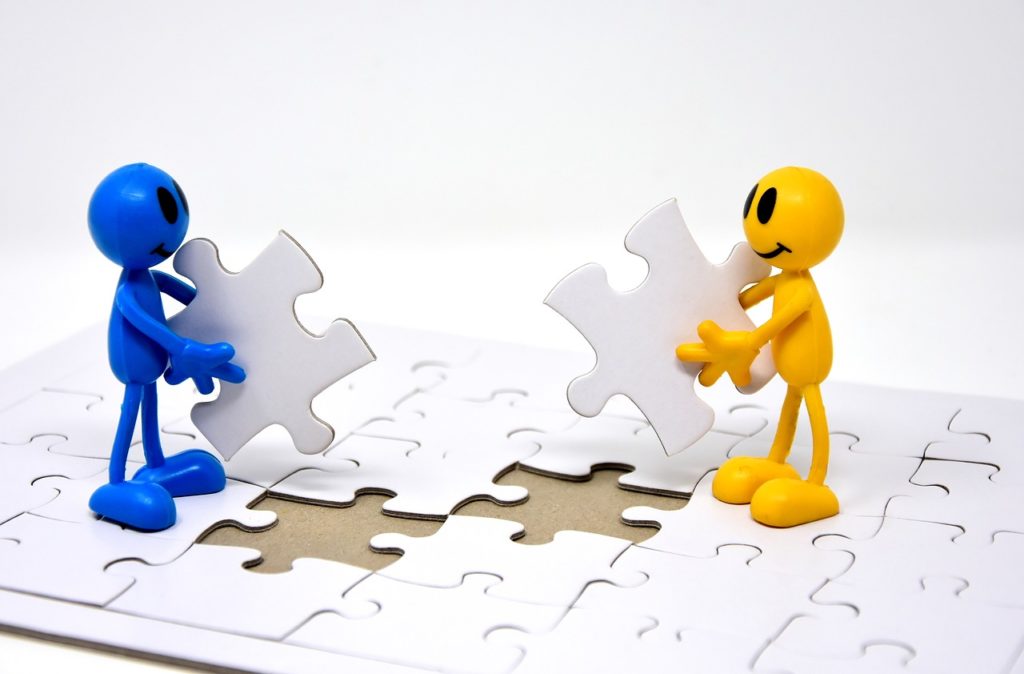
Playing puzzles is a great way for you to connect with your kids and for them to enjoy spending time with their siblings or friends. Working together to complete a puzzle promotes teamwork as the kids come up with strategies to complete the puzzle together. They may help each other through the frustration and engage in conversations. It is a great way to bond and build friendships as they take turns and help each other.
10. Self-Esteem
Completing a puzzle helps to build the self-confidence of a child. It may encourage them to pursue other challenges. The sense of pride and achievement once the puzzle is solved makes kids feel a sense of accomplishment which boosts independence. Puzzles are a good lesson to kids that putting in effort helps to achieve goals. I still remember the great feeling of finally finishing a 200 piece puzzle on a rainy day and being ready to take on a bigger challenge.
Check our our great competition here from our friends at Kiddo Pacific Toys for a chance to win two great kids puzzles and we will deliver them directly to your doorstep!









